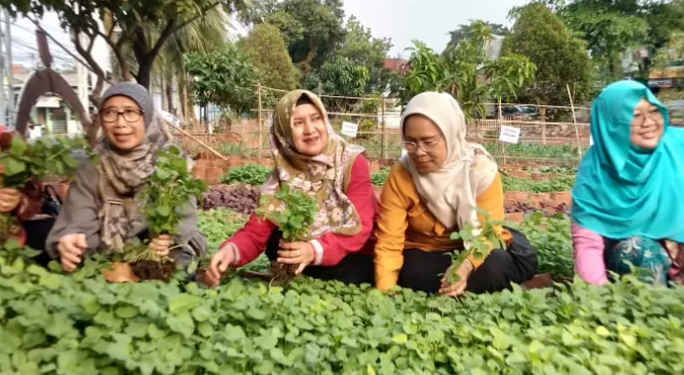#UrbanAgriculture #DigitalFarming #ArtificialLighting #SustainableAgriculture #FoodSecurity #Hydroponics #AgriculturalInnovation
In the heart of Depok City, where agricultural land is scarce, local authorities are pioneering innovative solutions to maximize crop yields. Secretary of Depok City, Supian Suri, emphasized the importance of digitalizing agricultural practices during the 2025 Depok City Department of Food Security, Agriculture, and Fisheries (DKP3) Forum. With limited farming space and water sources, the city is turning to technology to revolutionize urban agriculture.
Supian Suri highlighted the potential of artificial lighting technology in transforming minimal land into productive agricultural hubs. Unlike traditional farming methods dependent on weather conditions, artificial lighting allows for year-round cultivation without being bound by seasonal constraints. This technological advancement not only ensures a consistent food supply but also opens doors to high-value crop production.
Furthermore, the integration of digital technologies promises to enhance the economic prosperity of local farmers. By leveraging hydroponic techniques and cultivating ornamental fish and plants, Depok City aims to empower agricultural communities and drive sustainable development.
Endang Gunadi, Head of Food Security and Agriculture (KPP) at DKP3 Depok City, revealed that only 40 hectares of paddy fields remain in the region, with 4 hectares in Sawangan and 36 hectares in Tapos by the end of 2023. This shrinking agricultural land underscores the urgency for innovative approaches like artificial lighting to meet the city’s growing food demands sustainably.
Depok City’s embrace of digital agricultural technologies, particularly artificial lighting, signals a paradigm shift in urban farming. By harnessing these innovations, the city not only addresses the challenges of limited space and resources but also fosters economic growth and food security. With a commitment to sustainable practices and community empowerment, Depok sets a precedent for urban agriculture worldwide.































